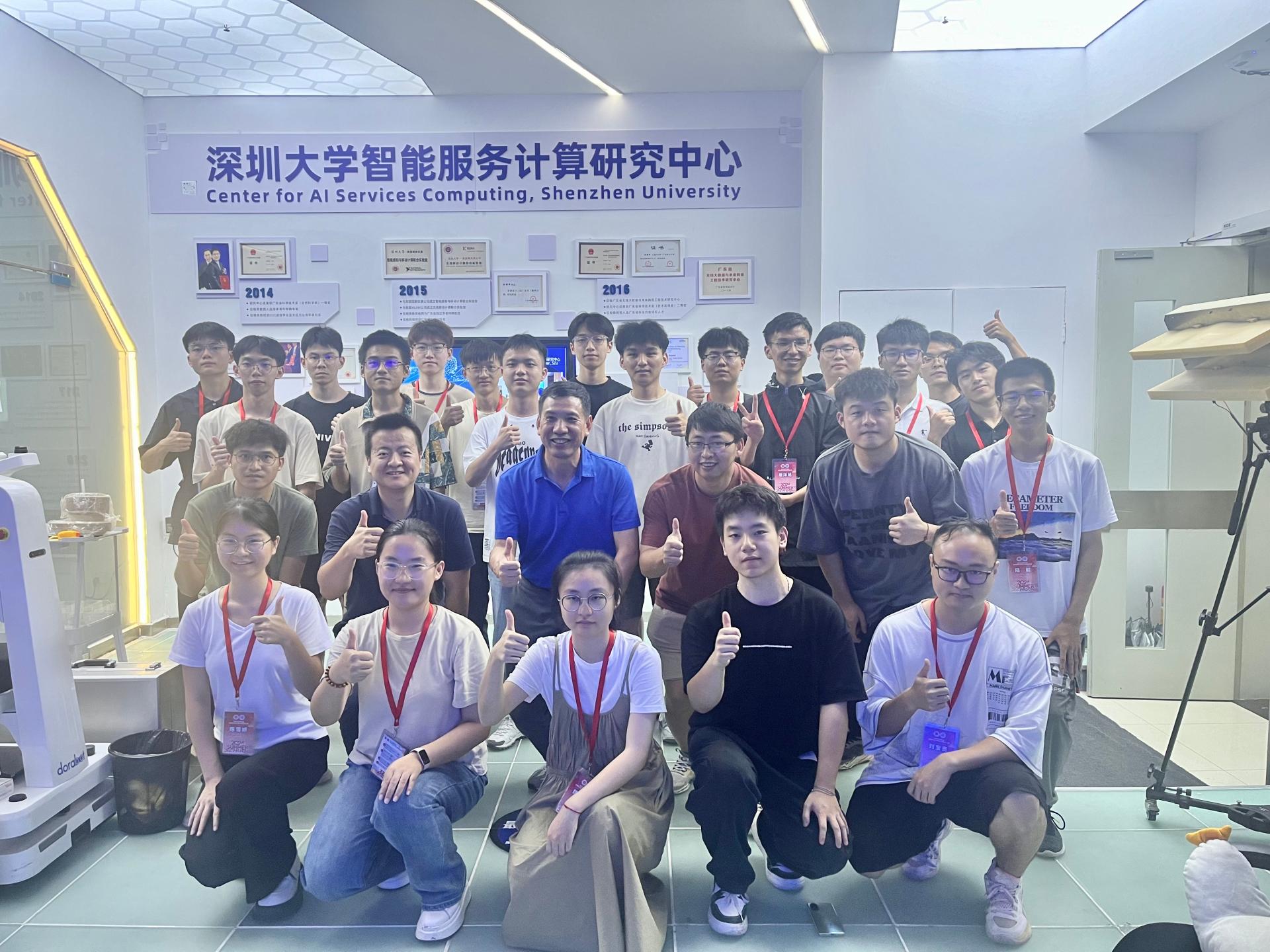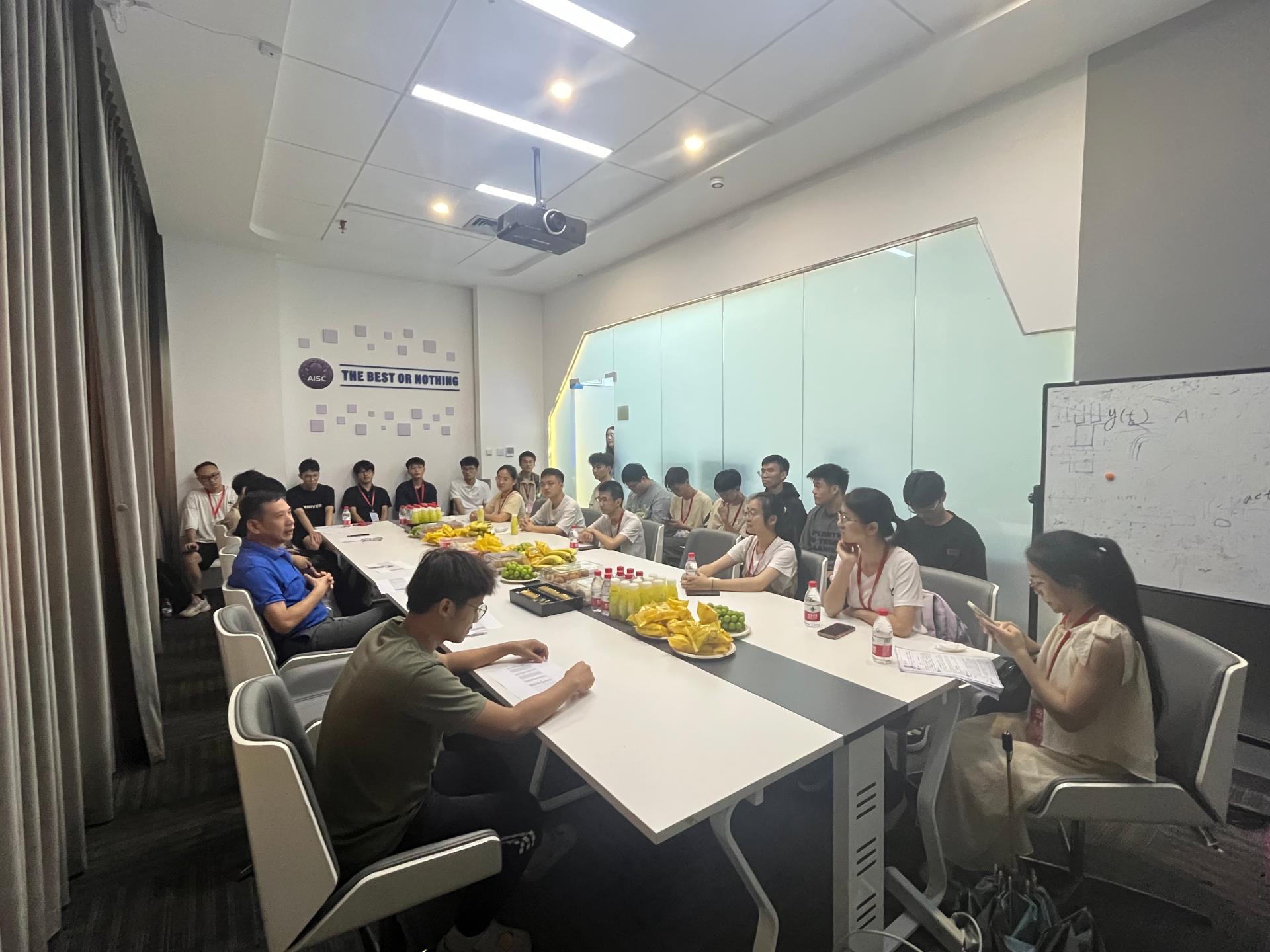On July 15, 2024, the third National Computer Summer Camp for Outstanding College Students of Shenzhen University officially started. From the whole day of July 15 to the morning of July 16, there was a strong academic atmosphere and a warm atmosphere in the lecture hall of Zhiteng Building. Teachers from each major research unit took turns on stage to share the latest progress and unique insights in their respective research fields, presenting an academic feast for the campers present. The teachers' sharing not only allowed the students to have a more specific and deeper understanding of the cutting-edge research direction, but also lit the light on their future learning and research road.

Professor Zhang Liangjie, Director of the Intelligent Services Computing Research Center, shared the report "Student Success 360" and Intelligent Services Computing ", introducing the Intelligent Services Computing Research Center as a global leading research institution in the fields of artificial intelligence, Internet of Things, large language models and next generation microservices architecture. Starting from cultivating students' Passion, Persistence, Ignite (Passion, Persistence, Ignite) quality model, through the implementation of three major strategies of service, intelligence, and industrialization, focusing on innovative artificial intelligence and service computing technology, and the needs generated by the challenges faced by the common technology of the industry. Strengthen students' ability to build solutions, promote the expansion of scientific and technological boundaries, and make the school a cradle for cultivating pioneers in scientific and technological innovation and scientists with a sense of social responsibility and global vision.

After the teachers of the major research units of the college devoted their wonderful academic lectures, on the afternoon of July 16, the Intelligent Service Computing Research Center held a face-to-face exchange meeting between teachers and students in the conference room 718 of the Zhiteng Building, providing a rare opportunity for campers to visit the field and exchange.
Mr. Zhang Liangjie, Director of the Center, together with Mr. Zhang Haodi and Mr. Luo Sheng, 20 campers gathered together to discuss the future and development of intelligent service computing.
At the beginning of the forum, Teacher Zhang Liangjie welcomed the campers and introduced the participating teachers, and then told the growth process of the Intelligent Service Computing Research Center, from the initial idea to the vigorous development today, every footprint embodies the wisdom and sweat of the team. He said the institute covers multiple frontiers of iot technology, such as smart homes, smart cities and industrial iot. He encourages students to actively communicate with their supervisors, gain insight into research projects, and be fully prepared to apply for graduate programs.
Mr. Zhang Haodi and Mr. Luo Sheng also shared their research fields and team characteristics, and invited campers to join the team. The participants introduced themselves in turn, shared their learning experiences and research results, and enhanced their understanding of each other.
In the exchange session, campers actively discussed topics such as graduate education model, application prospects of large models in the Internet of Things, optimized deployment strategies, iot application scenarios of blockchain technology, and graduate student planning. Around the campers' concerns, the teachers patiently answered the questions, and guided the campers to learn to think from multiple angles. The atmosphere was relaxed.
After the symposium, the teachers and campers visited the laboratory of the Research Center and took a group photo to experience the laboratory environment and a number of innovative technology research results, which further stimulated the campers' interest and enthusiasm for iot technology. Through this exchange, the campers have more understanding and interest in the Intelligent Service Computing Research Center, and I believe that it will provide more possibilities for attracting more high-quality students in the future.

